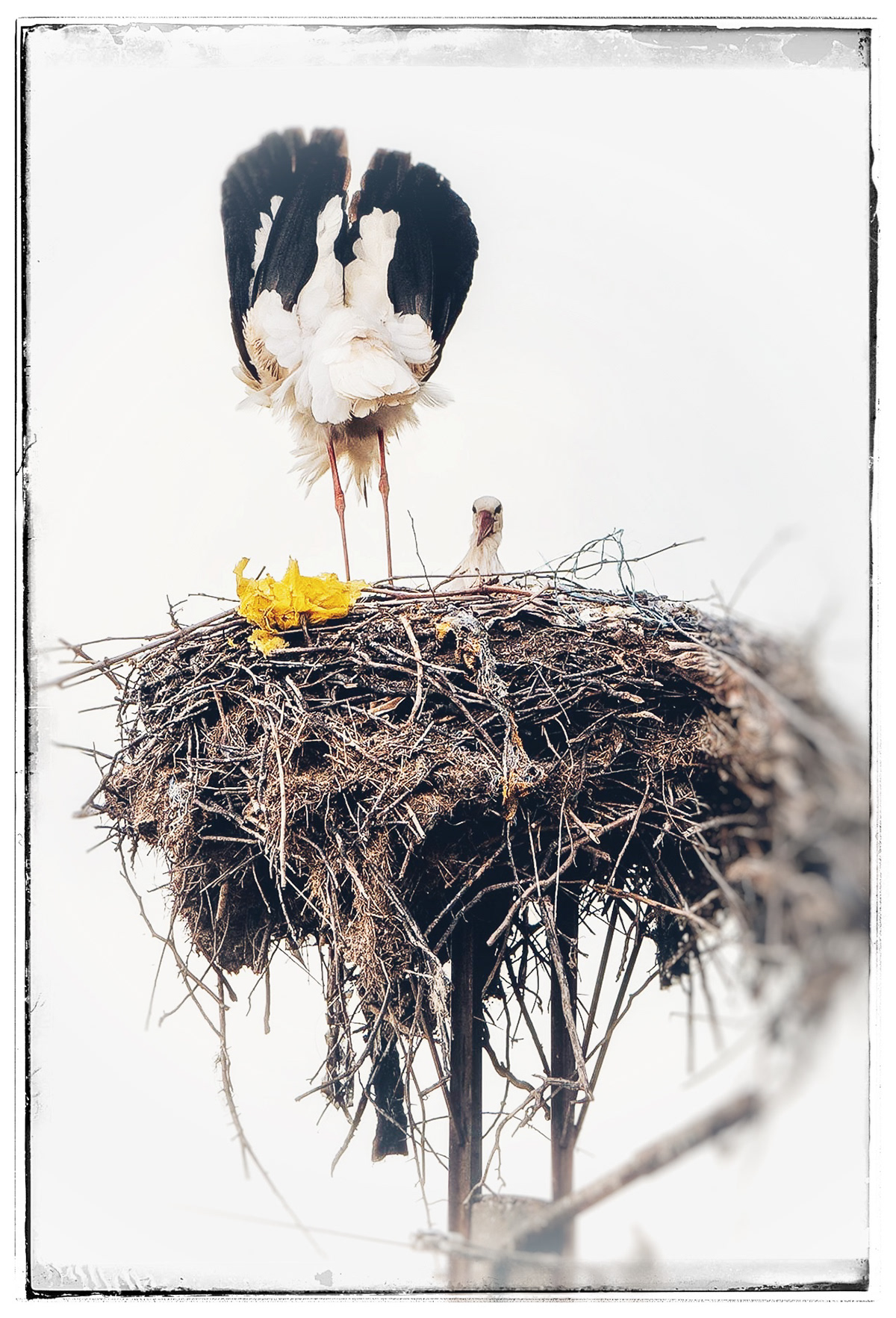Cheeky White stork
White stork does moony at photographer image captures with seconds apart and follow on
White storks return to their previous year's nesting site in March or late February. They stay for six months and migrate to Africa around September where they spend the winter.

Lifespan in the wild: 22 years. Average lifespan in captivity: 35 years.
Storks nest in small colonies. Always high up and uncovered, their nests are built on treetops, pylons, roofs or chimneys. Males, who arrive at the nesting site before the females, strengthen and enlarge existing nests, which can reach 2 metres in diameter and weigh more than 500 kg!

White storks position their stick nests off the ground in trees, on roofs, atop utility poles, or elsewhere high off the ground. Their large nests can be up to 6 ft wide and 9 ft deep. Pairs nest solitarily or in small groups. Both parents feed the chicks in the nest by regurgitating food directly into their mouths.
The nominate race of the white stork has a wide although disjunct summer range across Europe, clustered in the Iberian Peninsula and North Africa in the west, and much of eastern and central Europe, with 25% of the world's population concentrated in Poland, as well as parts of western Asia.

Rühstädt is a municipality in the Prignitz district, in Brandenburg, Germany. It is located close the confluence of the rivers Havel and Elbe. Rühstädt is famous for its high number of resident white storks and has been awarded the title European Stork Village by the initiative EuroNatur in 1996.
Various terms are used to refer to groups of storks, two frequently used ones being a muster of storks and a phalanx of storks.

They are monogamous, meaning breeding pairs mate for life. These birds return to the same nest every year, with the male arriving a few days before the female to repair and enlarge the structure.
Fact file
SizeUp to 3.8 ft (1.15 m); up to 7 ft (2.15 m) (wingspan)
Lifespan30-40 years
FoodEarthworms, insects, frogs, mice, fishes
PredatorsHyenas, jackals
HabitatEurope, Africa, Asia




